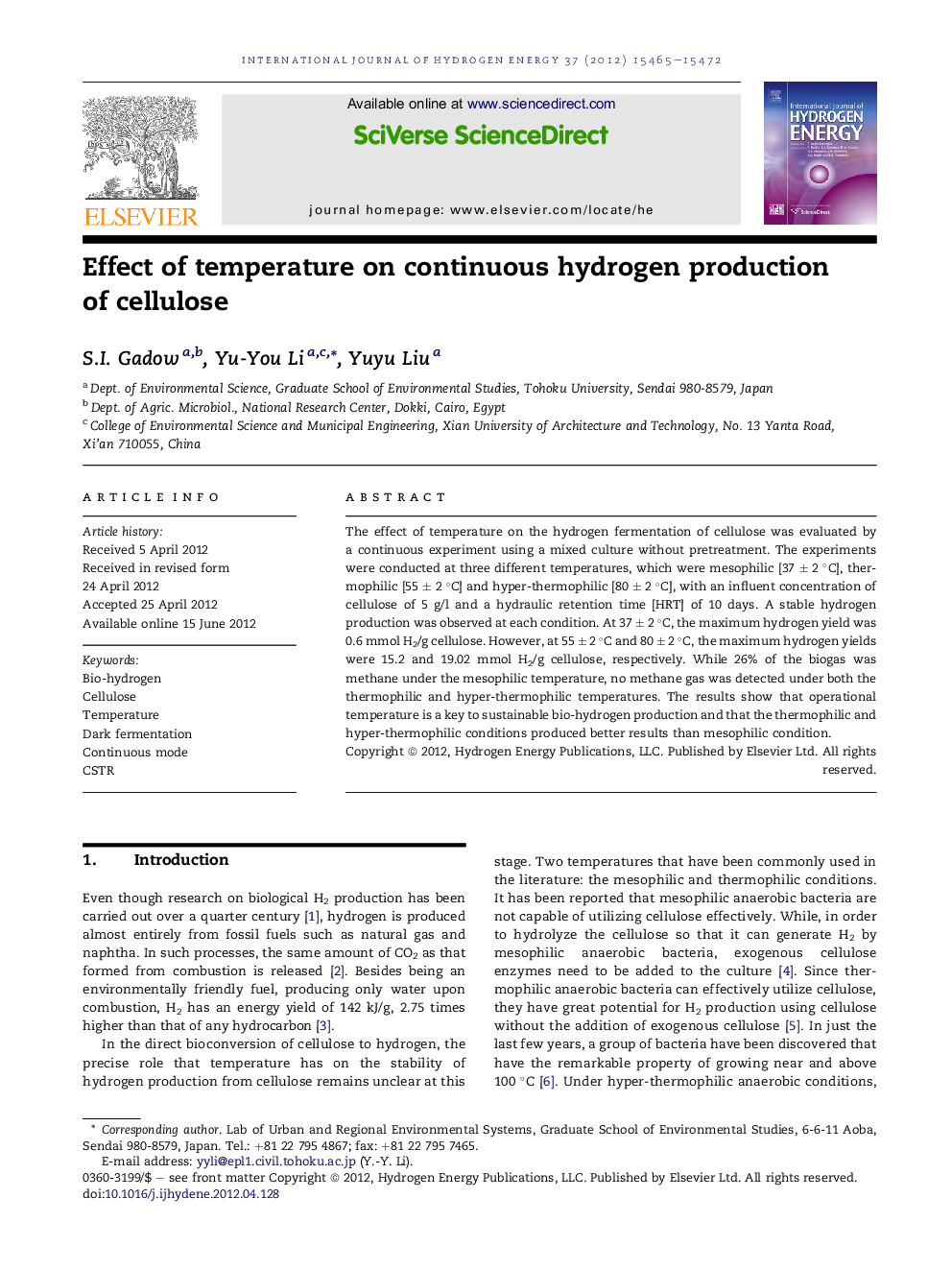| Article ID | Journal | Published Year | Pages | File Type |
|---|---|---|---|---|
| 1274554 | International Journal of Hydrogen Energy | 2012 | 8 Pages |
The effect of temperature on the hydrogen fermentation of cellulose was evaluated by a continuous experiment using a mixed culture without pretreatment. The experiments were conducted at three different temperatures, which were mesophilic [37 ± 2 °C], thermophilic [55 ± 2 °C] and hyper-thermophilic [80 ± 2 °C], with an influent concentration of cellulose of 5 g/l and a hydraulic retention time [HRT] of 10 days. A stable hydrogen production was observed at each condition. At 37 ± 2 °C, the maximum hydrogen yield was 0.6 mmol H2/g cellulose. However, at 55 ± 2 °C and 80 ± 2 °C, the maximum hydrogen yields were 15.2 and 19.02 mmol H2/g cellulose, respectively. While 26% of the biogas was methane under the mesophilic temperature, no methane gas was detected under both the thermophilic and hyper-thermophilic temperatures. The results show that operational temperature is a key to sustainable bio-hydrogen production and that the thermophilic and hyper-thermophilic conditions produced better results than mesophilic condition.
► Continuous H2 production of cellulose was obtained using mixed culture under 37, 55 and 80 °C. ► The maximum H2 yield (3.4 mol H2/mol hexose) was obtained under 80 °C. ► Low H2 and high CH4 yields found at 37 °C, while no CH4 detected in both 55 and 80 °C. ► The temperature is a key parameter to maintain stable H2 production. ► This is the first study on direct bioconversion of cellulose continuously at 80 °C.
